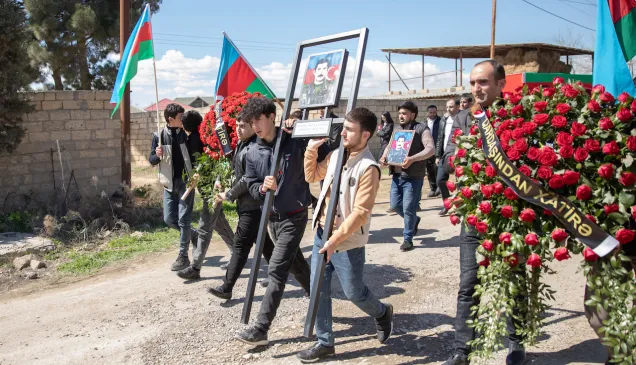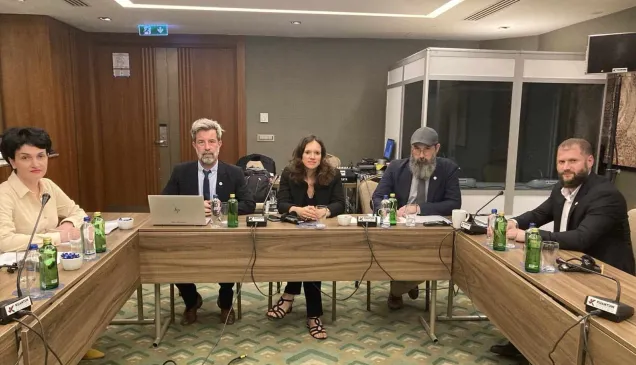Missing persons, conflict and prison crisis: our current concerns in Colombia

Humanitarian challenges 2018
Beyond any doubt, the most critical humanitarian challenge currently facing the country is finding the people who have disappeared as a result of the armed conflict and violence.
It has been more than two years since the Government and FARC-EP committed to searching for missing people as part of the Peace Agreement. However, their efforts have not been enough; thousands of families are still waiting for answers as to what happened to their loved ones.
Between 2015 and 2017, the number of missing persons cases opened by the ICRC to support families in their search increased by 133%. This figures does not necessarily mean that there has been an increase in disappearances, but rather that more people have come forward to report recent or past cases.
The violence continues
Peace is still a fragile possibility. Although the conflict between the Government and FARC-EP has ended, there has been no respite in clashes between armed groups, and between armed groups and security forces in primarily rural, Afro-Colombian and indigenous areas.
While the Colombian State has made efforts to reach the most isolated communities, the land-control interests of new and old armed groups have left their mark on civilians. There is still a lot of work to be done to alleviate suffering in these regions, which should have benefited more from the Peace Agreement.
Although the 101-day bilateral ceasefire between the Government and the ELN offered some relief in certain areas of the country, the most affected populations now more than ever need strong humanitarian agreements that will have a real impact on their daily lives. As a neutral and independent intermediary, we are willing to support initiatives that aim to relieve the suffering of victims.
The social control exerted by gangs, together with the resulting invisible borders, death threats, sexual violence and the use of children in crime, have sparked a humanitarian catastrophe in several cities. Yet these issues are often overlooked or, worse still, deemed to be natural consequences of poverty and inequality. It is unacceptable that such abuse has become the status quo in certain urban areas of the country.
Prison crisis
The Colombian authorities agree that the country's criminal policy is incoherent and ineffective. The Constitutional Court has stressed the policy's excessively punitive approach and stated that the current conditions in prisons violate the human dignity and rights of detainees.
Although we recognize the efforts being made by the authorities to resolve the enormous challenges facing the prison system, we still think that substantial changes need to be made to address the harsh conditions in which prisoners live.
Overcrowding is merely the tip of the iceberg. According to the National Prison Institute's (INPEC) January 2018 figures, overcrowding stood at 46%, meaning there are 36,400 too many people in the country's prisons. Yet the serious humanitarian consequences of such an ineffective criminal policy run deep and can lead to poor medical care and a lack of sanitary facilities, which accelerates the spread of diseases.
In an effort to try and reduce crime, detention rates have quadrupled in Colombia since 1993. However, there is no evidence to suggest that harsher punishments improve the safety of citizens.



